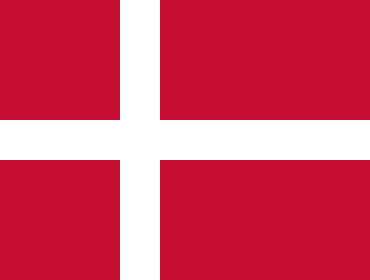The Influence of Right Wing Populism: Denmark, the EU and Immigration

The Danish elections would not otherwise have commanded much newsworthiness but for its potential, European consequences. For one, the UK prime minister, David Cameron, has cashed in on the defeat of a pro-EU, centre-left government to laud the exploits of a centre-right victory by Lars Løkke Rasmussen.
Former prime minister Helle Thorning-Schmidt was pit to the post in a narrow poll that paraded various skeletons in the Danish political cupboard, notably that of the EU and immigration. She had to witness the pulverising effect of the populist Danish People’s Party (DF), which finds itself the second-largest group in parliament behind the Social Democrats. What became strikingly clear was that Danish politics had congealed around the DF agenda.
The right-block of parties had issued joint statement that, “We will stand behind Great Britain and like-minded nations’ efforts to ensure that the EU doesn’t turn into a social union.” Among Rasmussen’s platforms has been a policy to refuse automatic welfare benefits to EU migrants, a position that sits rather well with the Cameron government. The EU system dealing with migration and benefits, in other words, is being pulled from the south (Greece), from the west (Britain) and now Denmark, in the north.
The underlying point here is that welfare payments are bad, but obtaining the labour of migrants is good. “We want an EU where people can go wherever workers are needed, but we don’t want an EU where people go wherever the social benefits are good.”[1] This is the logic of market fundamentalism, not social conscience. Embrace people’s labour, not their needs. Forget, in fact, that they do constitute raw material for citizenship.
A faint whiff of Ukip is wafting across the terrain of Danish politics, anti-establishment, but also grim. The DF set the agenda for the entire political campaign. It was the politics of firming nationalism and suspicion, and it seemed to have the other parties churning through their focus groups for answers. Even the prime minister was rattled, evidenced by remarks made in her New Year’s speech. “If you come to Denmark, you must of course work. You must learn the Danish language, and you must meet and mix with Danish colleagues.”
In a televised leaders’ debate, Thorning-Schmidt claimed that Denmark was distinctly not “a multiethnic society”.[2] This, notwithstanding the politicians and membership of her party of non-European background. As public relations guru for former prime minister Anders Fogh Rasmussen, Michael Ulveman, observed, it was “difficult for the voter to tell the exact difference between the opposition’s immigration policies and the government’s immigration policies.”[3] Or, for that matter, much else.
Others on the left of the Danish political spectrum have been left without a paddle, unable to steer the country away from the precipice of reaction. “There has been a tragic race to slam the door in the faces of refugees and I don’t want to play any part in it,” argued Pia Olsen Dyhr of the Socialist People’s Party in the final leaders’ debate. She was seconded by Uffe Elbœk of The Alternative. “I think that the debate about refugees and asylum seekers during this election has been downright shameful.”
The DF has insisted that border controls be re-introduced with Sweden and Germany. If there is to be a policy of accepting refugees, then it should be more focused on non-Muslim states. The subtext here is that Denmark has ample number of the Islamic faith, thank you very much. Ever lurking was the influence of February’s lethal attacks in Copenhagen by a lone Islamist.
In various stances, DF’s politics of indignation makes Rasmussen of the Venstre liberal party seem milder. Given that his own party needs DF support in some form, a testing situation faces negotiators. “We have to consider how we will get the most influence,” suggests the DF leader Kristian Thulesen Dahl, who bears striking resemblance to a Nordic storm trooper. Indeed, he is of the Order of the Dannebrog, suggesting white knight credentials and a possible propensity for destructiveness. It is that influence, rather than “ministerial titles” that counts for Dahl.[4]
This dissatisfaction has already played itself through, with Rasmussen seeking to form a one-party government after talks with the DF and the right-block failed to yield a workable arrangement. “It is my estimation that it will be possible to establish a Venstre government under my leadership that will enjoy support in parliament.” A remarkable state of affairs, given his party’s third placing. Not since 1973, when a government led by Poul Hartling won power only to last 14 months, have we seen this.
Even without being in a coalition, the DF have shown that anti-establishment politics, even on the populist right, can transform a liberal landscape. The rearguard can become the vanguard. The party influenced, without joining the scrum of government, official policies from 2001 to 2011. Immigration, with its strings pulled by an authority beyond that of the elected government, has become a demon to slay. Europe is watching with a mixture of perverse enjoyment and dismay.
Dr. Binoy Kampmark was a Commonwealth Scholar at Selwyn College, Cambridge. He lectures at RMIT University, Melbourne. Email:[email protected]
Notes
[1] http://www.telegraph.co.uk/
[2] http://www.telegraph.co.uk/
[3] http://www.telegraph.co.uk/
[4] http://america.aljazeera.com/

